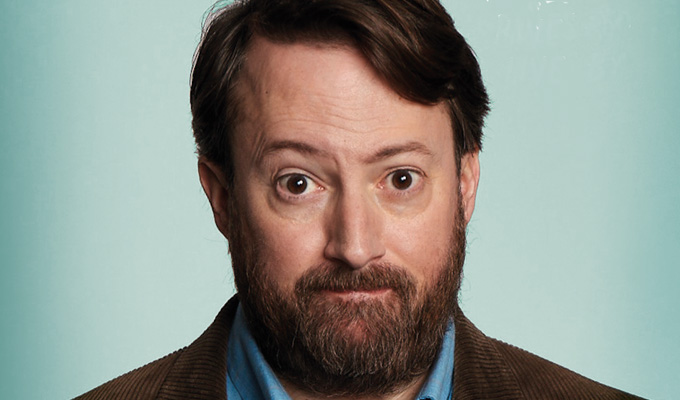David Mitchell and Robert Webb are returning to Channel 4 with a new sketch show.
The comedians will be joined by ensemble cast of next generation writer/performers: Kiell Smith-Bynoe, Lara Ricote, Stevie Martin, and Krystal Evans, plus a team of established and upcoming comic writers.
In a statement, David Mitchell and Robert Webb say: "When Channel 4 asked us to do another sketch show we were startled, bemused and available. It's a perilous time for the industry and so it's our hope that relaunching the trickiest genre of comedy is a brilliant piece of counterintuitive commissioning.
'And we're confident that unlike Roger Moore with his shoe on the bonnet of a car teetering on the edge of a cliff in For Your Eyes Only [REPLACE WITH 21ST CENTURY REFERENCE?] we're not about to give British TV comedy a final lethal nudge into the abyss.
'We're looking forward to working with our brilliant new cast despite their youth and talent and would like to encourage viewers to watch the advert break carefully and do their best to buy something. It doesn't have to be a car but, you know, a box of chocolates or an app or something."
Ghosts star Kiell Smith-Bynoe said: 'Getting to join this project with comedy legends Mitchell & Webb feels like getting to sit on the grown-ups table that you've been trying to get on for years, then you realise the grown-ups are just as funny, silly and they'll let you have a sip of Advocaat. I'm really excited to be a part of this long-awaited return of comedy royalty.'
Lara Ricote said: "I am overjoyed to be making this with the best there is. It's such a silly, good and sweet group and the sketches are just very funny. I am feeling very lucky to be part of this. The writers' rooms were SO fun and now we get to act in it? It's a dream!"
Stevie Martin said: "'Istarted doing online sketches because I never thought I'd get to do sketch comedy on actual TV - but now I'm doing it on actual TV with the two people who made me want to be a sketch comedian in the first place?! It's absolutely wild. Also they've both been so fun and generous to work with - plus David was very nice when I said I enjoyed his show Luther.'
Krystal Evans said: 'Working with these guys and this incredibly talented cast is an actual dream come true and also they give us free biscuits and if we're really good, pizza.'
The six-part series will be produced by That Mitchell & Webb Company in association with Big Talk Studios and directed by the duo's long-standing producer Gareth Edwards. No broadcast date has yet been announced.
Charlie Perkins, head of comedy at Channel 4, added: 'Sketch is back baby. We're so honoured to be working with David, Robert and their contemporaries, alongside an exceptional collective of newer voices both on and off screen.
'Sketch shows have historically been the bedrock of generations of comedy writers and performers- giving so many household names their first credits and platforms and Channel 4 has always been at the heart of this. It's been such a sparky and joyous journey making this show so far and we can't wait for audiences to see it.'
Mitchell and Webb first met while students at Cambridge in 1993, and collaborated on the 1995 Footlights revue while at Cambridge.
They performed at the Edinburgh Fringe and wrote for shows including Big Train and Armstrong and Miller before getting their own sketch show The Mitchell and Webb Situation, on the short-lived Play UK channel.
They were then cast in Peep Show, which ran on Channel 4 from September 2003 to December 2015, propelling them to fame.
They also wrote and starred in the Radio 4 sketch show That Mitchell and Webb Sound, later adapted for television on BBC Two as That Mitchell and Webb Look, winning a Bafta in 2007.
Kenton Allen, chief executive at Big Talk Studios, said: 'Sketch comedy is an incredibly valuable part of the comedy eco-system so we're thrilled that clever Channel 4 are doing what they are best at by supporting high risk creative endeavours in an innovative format that can reap enormous rewards for viewers across multiple platforms.
'David Mitchell and Robert Webb returning to their Bafta-winning sketch show roots feels like I'm witnessing a rare comedy conservation success story. Who better to lead this comedic rescue mission than two masters of the craft. Like proud zookeepers, we can't wait to show off these magnificent specimens and their brilliant talented offspring let loose in their natural habitat."


